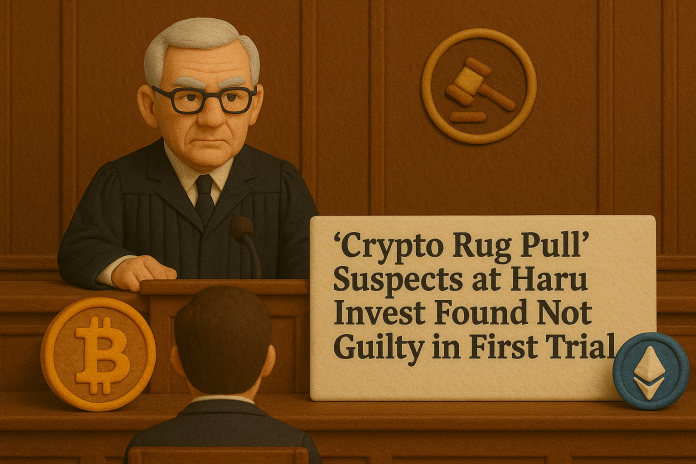
In a landmark ruling, the Seoul Southern District Court has acquitted the key executives of Haru Invest, a crypto investment firm at the center of one of South Korea’s largest “rug pull” scandals. The court ruled that the defendants were not guilty of fraud, citing insufficient evidence of criminal intent.
Haru Invest had raised approximately 880 billion KRW (about $635 million) from over 30,000 investors by promising high returns through its digital asset management services. However, by late 2022, the platform began halting withdrawals, sparking suspicions of a Ponzi scheme and prompting criminal investigations.
Prosecutors indicted CEO Park, Co-CEO Song, and business director Lee on charges of large-scale fraud under the Act on the Aggravated Punishment of Specific Economic Crimes, seeking prison terms of up to 15 years. The indictment claimed the company deceived investors while already facing insolvency and knowingly continued operations.
The court, however, found all three not guilty, stating: “It is difficult to definitively classify Haru Invest’s business model as illegal or unsustainable. There is not enough evidence to prove that the defendants deliberately misled investors.” The ruling also noted that the executives had injected their own funds into the business and made efforts to sustain operations, making even implied intent (willful negligence) hard to establish.
Only Chief Operating Officer (COO) Kang was convicted—found guilty of embezzling approximately 1.5 billion KRW (~$1.1 million) for personal use. He received a suspended sentence: two years in prison, three years of probation, and 120 hours of community service.
Victims of the alleged fraud have expressed frustration at the verdict, though they may still pursue civil litigation for damages. Critics argue that while the court did not find legal wrongdoing, moral accountability remains unresolved.
As South Korea moves forward with stronger digital asset regulations, this ruling is likely to serve as a key precedent for future crypto-related legal cases.






